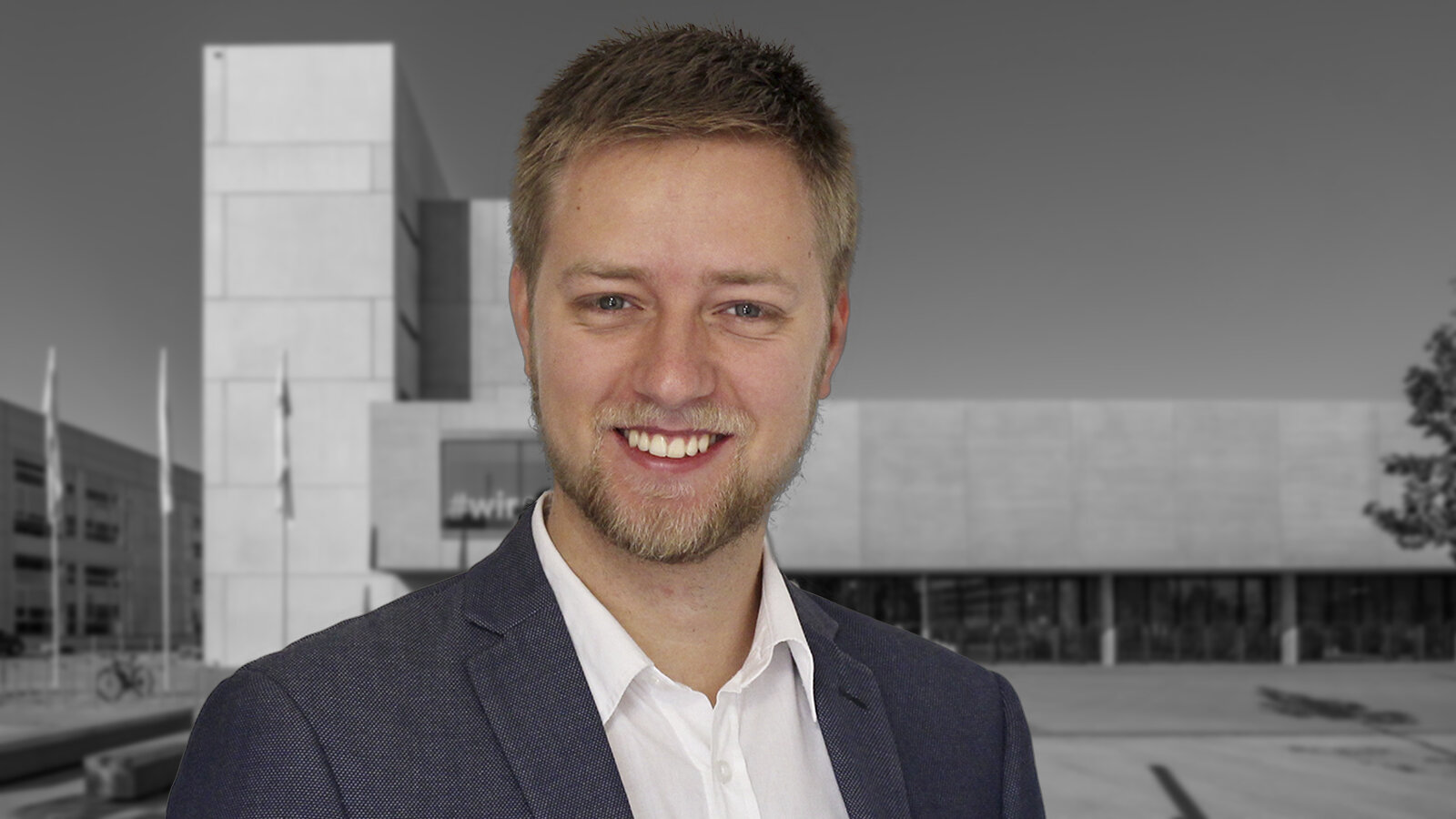Language Skills Open Career Doors
Ladislav Weber completed a unique double master's degree at the Universities of Technology in Prague and Chemnitz and then stayed in Saxony
-

Ladislav Weber comes from the Czech Republic and has built a career as an engineer by studying at Chemnitz University of Technology Photo/Collage: private/Jacob Müller
Ladislav Weber works as development engineer at Linamar in Crimmitschau near Zwickau. His path to this position was via an international double master, which is unique in Europe and links the universities of technology in Prague and Chemnitz. He talked to Maria Hauschild from the Career Service at Chemnitz University of Technology about his special master's degree and his career start in Germany.
Ladislav, could you please introduce yourself briefly?
My name is Ladislav Weber and I originally come from the beautiful spa town of Karlovy Vary in the Czech Republic. I went to school there. In my free time I played the violin and the piano, and also took Latin and standard dance. In Prague I completed my Bachelor's degree in mechanical engineering. Since September 2017 I’ve been living in Germany.
After your bachelor's degree you decided to do an international double master's and studied in Prague as well as in Chemnitz. How did it come about and how did it all work out?
My plan was to study in Germany to learn German. But as I didn't want to lose a year, I decided against the Erasmus program and for the international double master. The program is a cooperation between different universities in the Czech Republic, Germany, France and the Netherlands. This gave me the opportunity to first acquire basic knowledge of vehicle design and technology in Prague. The lectures were in English, but I took extra lessons on the side to learn a little German. The specialization then took place in Chemnitz.
Why did you decide to study at Chemnitz University of Technology?
Chemnitz University of Technology was the only cooperating university for this master program in Germany. But that wasn't too bad, because the specialization in the field of fuel cell drives appealed to me a lot. In addition, the corresponding research area at Chemnitz University of Technology is excellently positioned. So I don't regret my decision for a second. In spring 2019 I was able to successfully complete my Master's degree in Chemnitz.
What was your next step after that?
I started looked for potential employers in the region while I was still a student. The Career Service helped me to design my application documents in German in an attractive way. On the Career Service website I found a list of partner companies, including Linamar. Now I work there as a design engineer, designing camshafts and gearboxes, for example.
What did you get out of your studies? Did studying in a foreign country change your view of life?
Often theory is not the decisive factor. Nowadays we can quickly find a lot of information on the Internet. The goal of your studies should rather be to develop or improve your problem-solving skills because it is impossible to know everything. But the university teaches you how to find individual solutions for a new problem.
Through my studies in Germany I have become aware of how important it is to speak the language of the country you are in. It opens all doors for you, whether it's a job or contact with locals.
What was your personal career highlight? How do you envisage your professional future?
My highlight was definitely that I was able to successfully complete my studies last year - and with a master's thesis in German. I found a great job in Saxony and became an important part of my German-speaking team. I am simply happy that I have integrated myself so well in Germany as a foreigner. In the future I would like to develop professionally, learn as much as possible, and maybe even take on a management position.
What would you advise other (international) students to do?
Don't just stay among yourselves! The best thing about studying abroad is the opportunity to learn the language directly on site and much faster than anywhere else in the world. Even if your German isn't that good yet, mingle with people, take part in discussions and improve your language level until at some point it will no longer be a problem to communicate in German. With the help of my Polish girlfriend and her very good German I was able to improve my language level from B1 to C1 in only half a year.
Thank you very much for the interview.
(Author: Career Service / Translation: Chelsea Burris)
Matthias Fejes
21.07.2020




